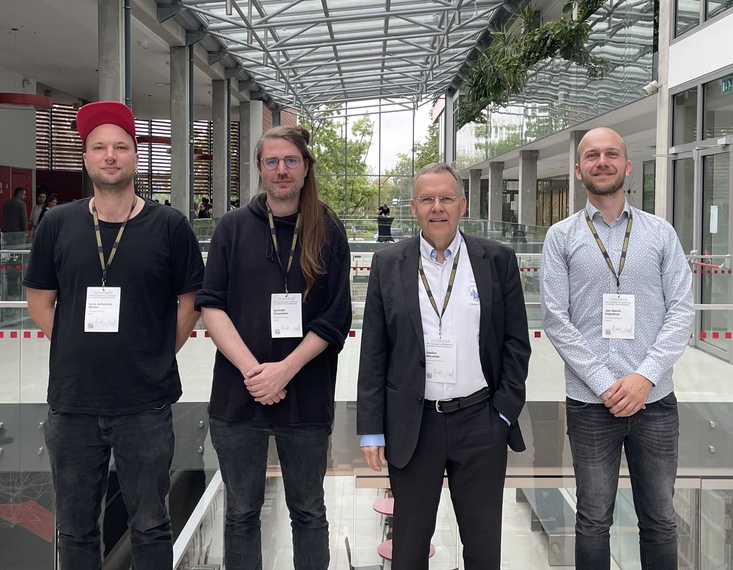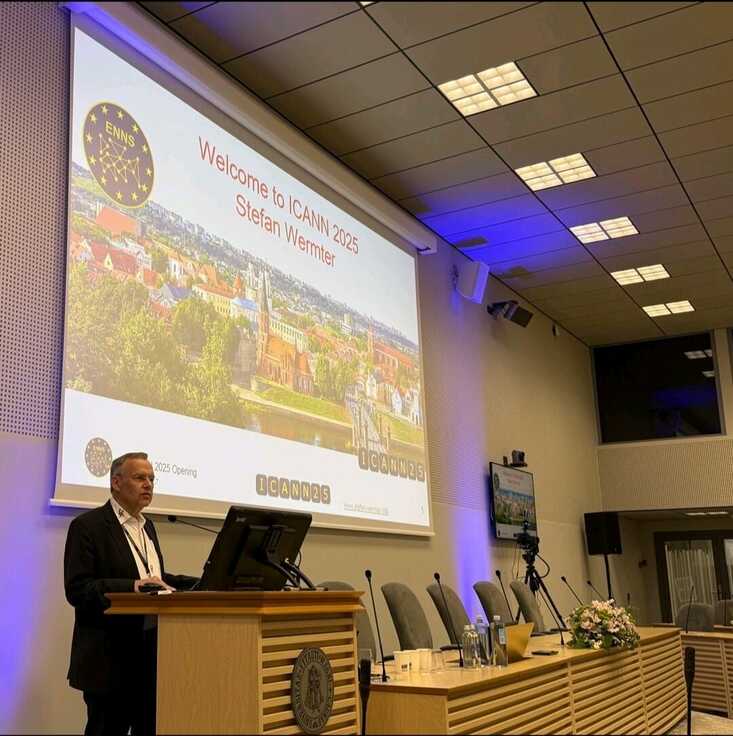Knowledge Technology at ICANN'25
8 September 2025

The 34th International Conference on Artificial Neural Networks (ICANN 2025), the flagship event of the European Neural Network Society (ENNS) , took place this year in Kaunas, Lithuania, marking a milestone for both the international AI and neuroscience community and the Lithuanian AI ecosystem.
ENNS President Stefan Wermter officially opened the conference, which received 375 submissions, of which 170 were accepted, reflecting the field’s rapid progress and diversity. With over 200 presentations from researchers representing 39 countries, ICANN 2025 once again proved to be a global stage for cutting-edge research in AI, neuroscience, and brain-inspired computing.
The first day of the conference featured keynote lectures by Viktor Jirsa (Aix-Marseille University, France) and Christiane Woopen (University of Bonn, Germany), as well as several invited talks.
A brand-new highlight this year was the public panel discussion “Where does AI lead to? Opportunities and Risks”, which brought together world-leading experts including Bernhard Schölkopf, Christiane Woopen, Viktor Jirsa, Gintare Karolina Dziugaite, and Yoshua Bengio. The panel sparked open dialogue on the societal and technological future of AI, from its vast opportunities to its ethical challenges.

Contributions from the Knowledge Technology Team
Our team made a strong impact at ICANN 2025 with multiple papers and presentations featuring their work with the NICOL robot:
Luca Müller presented “Pointing-Guided Target Estimation via Transformer-Based Attention” , introducing a transformer model that enables robots to understand human pointing gestures for collaborative tasks.
Lennart Clasmeier presented “Keypoint-based Diffusion for Robotic Motion Planning on the NICOL Robot” , showing a diffusion-based architecture that accelerates collision-free robotic motion planning.
Jan-Gerrit Habekost introduced “Shaken, Not Stirred: A Novel Dataset for Visual Understanding of Glasses in Human-Robot Bartending Tasks” , part of the Horizon Europe project TERAIS. The work provides a new dataset and auto-labeling pipeline, demonstrated in a bartending scenario with NICOL.
The team also contributed to work by Miroslav Cibula (Comenius University Bratislava) on “Towards Bio-Inspired Robotic Trajectory Planning via Self-Supervised RNN” , as part of further TERAIS collaboration. This bio-inspired approach trains robots through motor babbling and integrates learned models into a recurrent neural network for trajectory generation.


